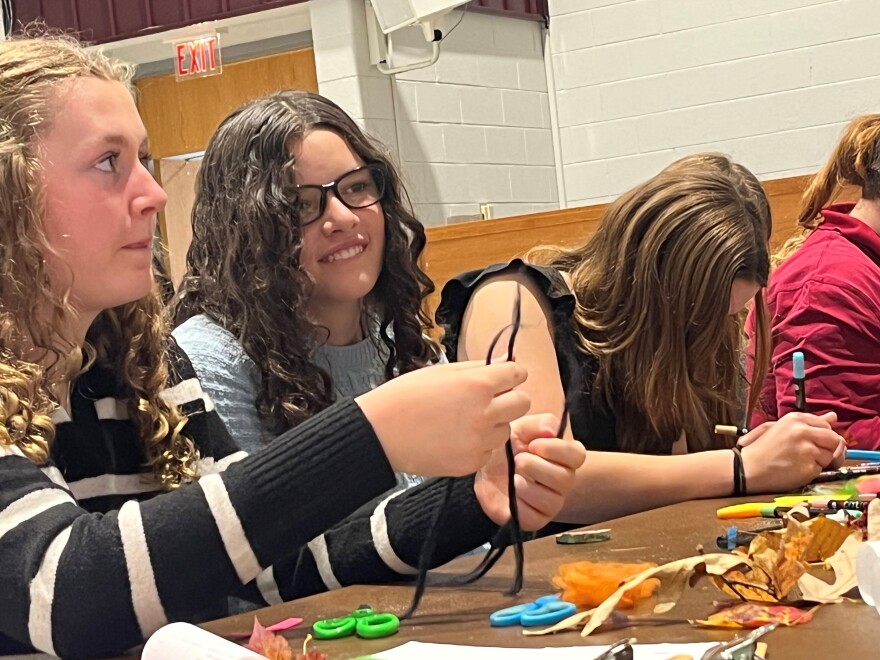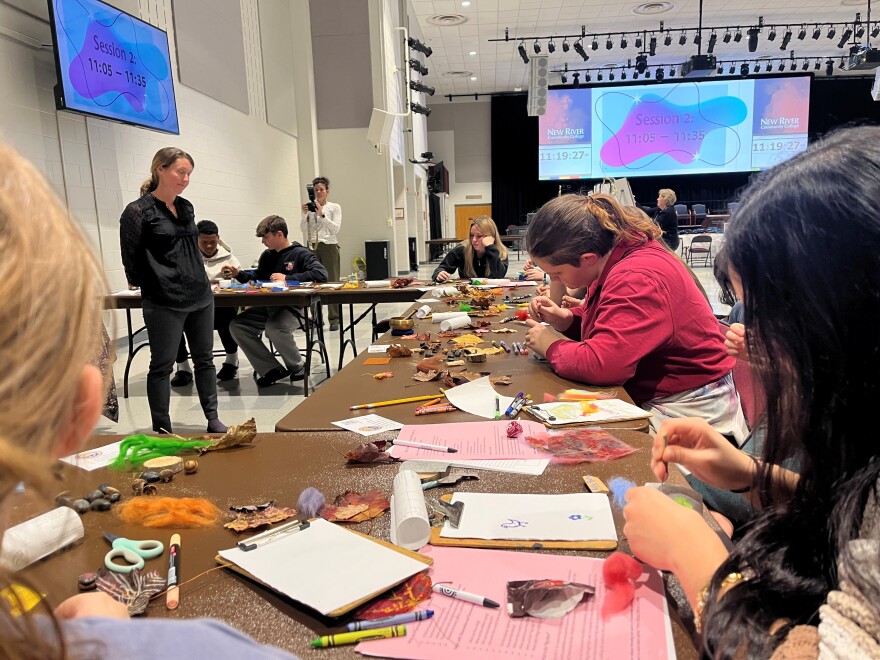Elected officials on both sides of the political aisle have talked about the need to help make more quality child care available to Virginians, and this issue may surface during the upcoming legislative session. There are a number of challenges to improving the number of high-quality childcare centers, including a lack of qualified workers. The Community Foundation of the New River Valley and Virginia Tech have been working to recruit high school students to go into this in-demand industry.
Inside an auditorium at New River Community College, dozens of high school students attended a recent career training event. They spent the day learning from child care directors and advocacy groups what it’s like to work as a preschool teacher.
“Many of them are here just to explore,” explained Laura Kantrell, a Floyd County high school teacher who brought a dozen of her students to the career fair.
“It’s not necessarily that they’re choosing this as a career path, but I see their interest being piqued,” Kantrell said. “The more they can have these types of experiences, possibly the more likely they will be to pursue a career in education or early childhood education.”
One of her students is 9th grader Emma Smith, who said she wants to be a teacher. “I think it’s a lot of pressure, cause you have the lives of children at stake,” Smith said. “But you just want them to succeed. So that could be pretty intimidating. But I think overall, that motivates me more than scares me.”
If Smith does end up becoming a teacher, she’ll likely have a lot of schools looking to hire her. Especially if she wants to focus on infant, toddler, or pre-k. She said she does feel a little anxious about whether she might end up at a center with staffing shortages.
“I think that can be scary, because if you have to handle a lot of situations by yourself, with not the help that you really need,” Smith said.
In a recent study by a Southwest Virginia-based nonprofit, called EO Companies, nearly 60% of child care centers in this region reported struggling to hire enough assistant teachers. More than 40% struggled to hire lead teachers.
And because understaffing creates more stress in the classroom, this can cause teachers to leave the profession, creating a never-ending spiral. Low pay also makes it a tough sell to potential workers. EO’s director of early education, Susan Patrick, said they’re working to get more centers to pay assistant teachers at least $15 an hour.
“That in itself is difficult because child care as a business model is a little broken,” Patrick said. “In the fact that it costs more to provide the service than you can actually charge to give the service.”

Bonnie Graham, who oversees early childhood education at New River Community College, said centers that rely on parent tuition often struggle to pay a living wage for qualified teachers.
“And oftentimes, when the teachers get more training or more education, then the centers need to pay them more,” Graham said. “And they oftentimes can’t afford to pay them more unless they charge parents more. And parents can’t afford to pay more. So it’s a real dilemma.”
Back at the career fair, a student from Pulaski County is excited to learn some good news at one of the tables: The Community Foundation of the New River Valley offers scholarships. Also, students who live in the New River Valley can apply to attend two years of free tuition at New River Community College, through the Access to Community College Education (ACCE) Program. Students must earn a 2.5 GPA and complete 80 hours of community service every year.
Senior Alexa Olivares said she is thinking of applying for the ACCE program and then transferring to a four-year university.
“The fact that they give us opportunities to come and not be spending so much money, that’s really helpful,” Olivares said.
Paying for students to go to college is one solution to the child care worker shortage.
But advocates like Graham and Patrick agree; child care centers are struggling to afford to pay workers a living wage.
Until that happens, Southwest Virginia will likely continue to struggle with a lack of options for parents— at least if they want to get their kids into high-quality child care centers.






